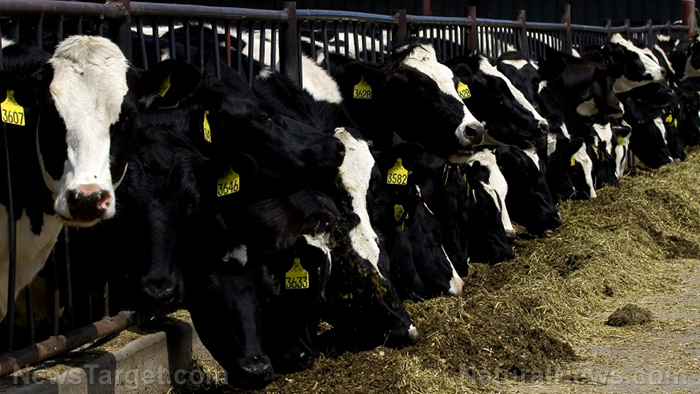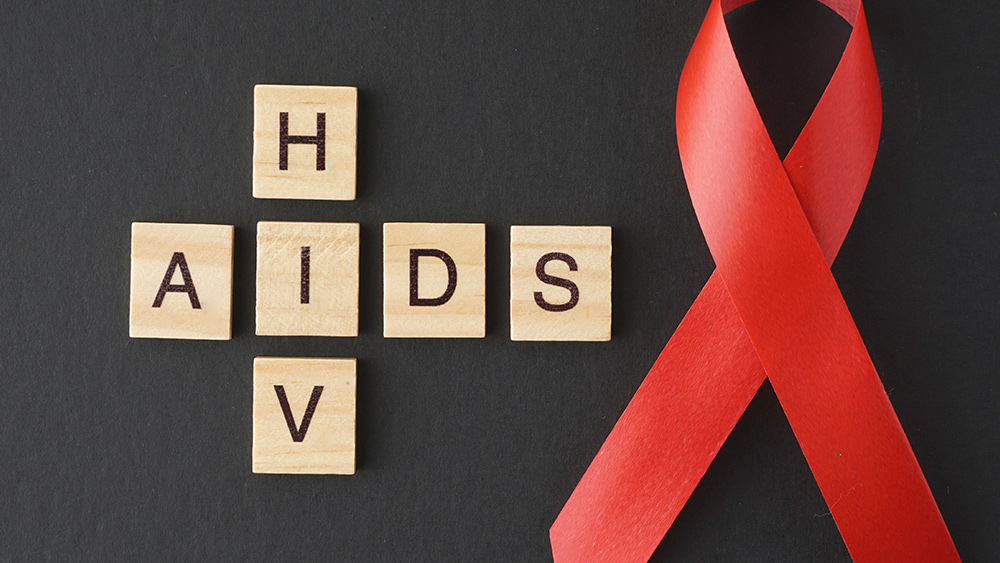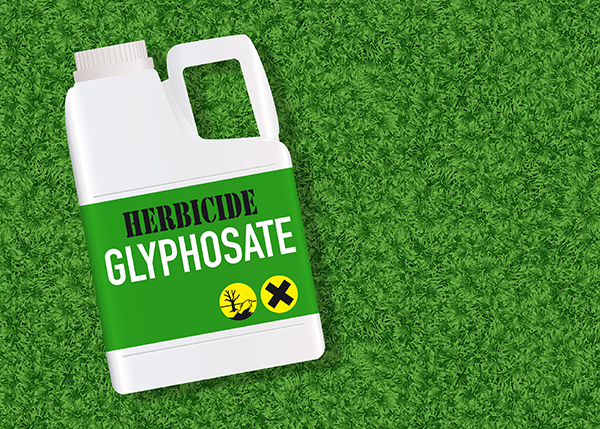“What’s In Your Milk?” The unseen dangers of rBGH and the battle for transparency
04/23/2025 / By Belle Carter

- Dr. Samuel S. Epstein’s book “What’s In Your Milk?” investigates rBGH (recombinant bovine growth hormone), a synthetic hormone developed by Monsanto (now Bayer) in the 1980s to increase milk production and the associated health risks for cows and humans.
- Cows treated with rBGH experience severe health issues, including increased infections, infertility and stress-related diseases. For humans, the milk contains higher levels of IGF-1, a hormone linked to higher risks of breast, colon and prostate cancers and is not destroyed by pasteurization.
- Despite concerns, the FDA approved rBGH in 1993 based on flawed and manipulated studies. The book criticizes the FDA’s close ties with the biotech industry, exemplified by Michael Taylor, the Deputy Commissioner at the time, who was previously a Monsanto lawyer.
- Leaked documents show Monsanto suppressed evidence of adverse health effects and used illegal drugs to treat mastitis in cows. This has led to consumer demand for transparency and safer food options, with the organic milk market growing due to concerns about hormones and antibiotics.
- Epstein advocates for mandatory labeling of rBGH-treated milk and urges consumers to support organic and rBGH-free products. He emphasizes the importance of holding regulators accountable and using consumer power to drive change, highlighting that the choice for a safer, healthier future lies with consumers.
The book “What’s In Your Milk? An Exposé of Industry and Government Cover-Up on the Dangers of the Genetically Engineered (rBGH) Milk You’re Drinking” by Dr. Samuel S. Epstein delves into the murky world of rBGH, a synthetic hormone injected into cows to boost milk production, and the troubling implications for both bovine and human health.
The story begins in the 1980s when Monsanto, now owned by Bayer, developed rBGH (recombinant bovine growth hormone) as a means to increase milk yields. On the surface, the promise of more milk seemed like a boon for farmers and consumers alike. However, the reality is far more complex and concerning. According to Epstein’s book, cows injected with rBGH suffer from a range of health issues, including heightened susceptibility to infections, infertility and even “burnout” or lactational failure. The stress from these injections can lead to severe stress diseases such as gastric ulcers, arthritis and heart problems. Shockingly, nearly half of the injected cows become infertile.
The implications for human health are equally alarming. Milk from rBGH-treated cows contains elevated levels of insulin-like growth factor 1 (IGF-1), a hormone known to stimulate cell growth and division. Studies have shown that increased levels of IGF-1 are associated with a higher risk of breast, colon and prostate cancers. The Food and Drug Administration‘s (FDA) own documents, as cited in the book, reveal that IGF-1 is not destroyed by pasteurization and is readily absorbed into the bloodstream, particularly in infants.
Despite these concerning findings, the FDA approved the use of rBGH in 1993, a decision that has been met with widespread criticism. Epstein’s book highlights the questionable role of the FDA in this saga, revealing that the approval was based on studies later found to be flawed and, in some cases, manipulated by Monsanto.
The book also exposes the cozy relationship between the FDA and the biotech industry. For instance, Michael Taylor, the FDA’s deputy commissioner at the time of rBGH’s approval, was a former lawyer for Monsanto. This revolving door between industry and government raises serious questions about the impartiality of the regulatory process.
Confidential industry files, leaked to Epstein, further reveal that Monsanto has gone to great lengths to suppress and manipulate data. The files show that Monsanto suppressed evidence of adverse health effects and even used illegal drugs to treat mastitis in cows injected with rBGH. These revelations led to a congressional investigation and calls for the FDA to revoke its approval of rBGH.
The book also underscores the power of consumer demand in driving change. According to a 2005 report by Datamonitor, the organic milk market is booming, driven by consumer concerns about hormones and antibiotics in conventional dairy farming. This trend reflects a growing awareness among consumers about the dangers of rBGH and a desire for safer, healthier food options.
Epstein’s book calls for mandatory labeling of milk from rBGH-treated cows, so consumers can make informed choices. “We have a right to know what’s in our milk,” he argues. “Transparency is key.”
The author also urges consumers to support organic and rBGH-free dairy products, sending a clear message to the industry and regulators that harmful practices will not be tolerated.
In conclusion, “What’s In Your Milk?” is more than just an exposé; it’s a call to action. It reminds us that the power to effect change lies in our hands. By demanding transparency, supporting ethical farming practices, and holding our regulators accountable, we can ensure a safer, healthier future for ourselves and future generations. As Epstein aptly puts it, “The choice is ours.”
Learn more about the book “What’s In Your Milk?” by watching the video below.
This video is from the BrightLearn channel on Brighteon.com.
Sources include:
Submit a correction >>
Tagged Under:
big government, clean food watch, Dr. Samuel S. Epstein, ethical farming practices, FDA, food safety, GMO, health risks, IGF-1, insulin-like growth factor 1, milk, Monsanto, rBGH, recombinant bovine growth hormone, regulations, transparency
This article may contain statements that reflect the opinion of the author
RECENT NEWS & ARTICLES
COPYRIGHT © 2017 SCIENTIFIC NEWS




















